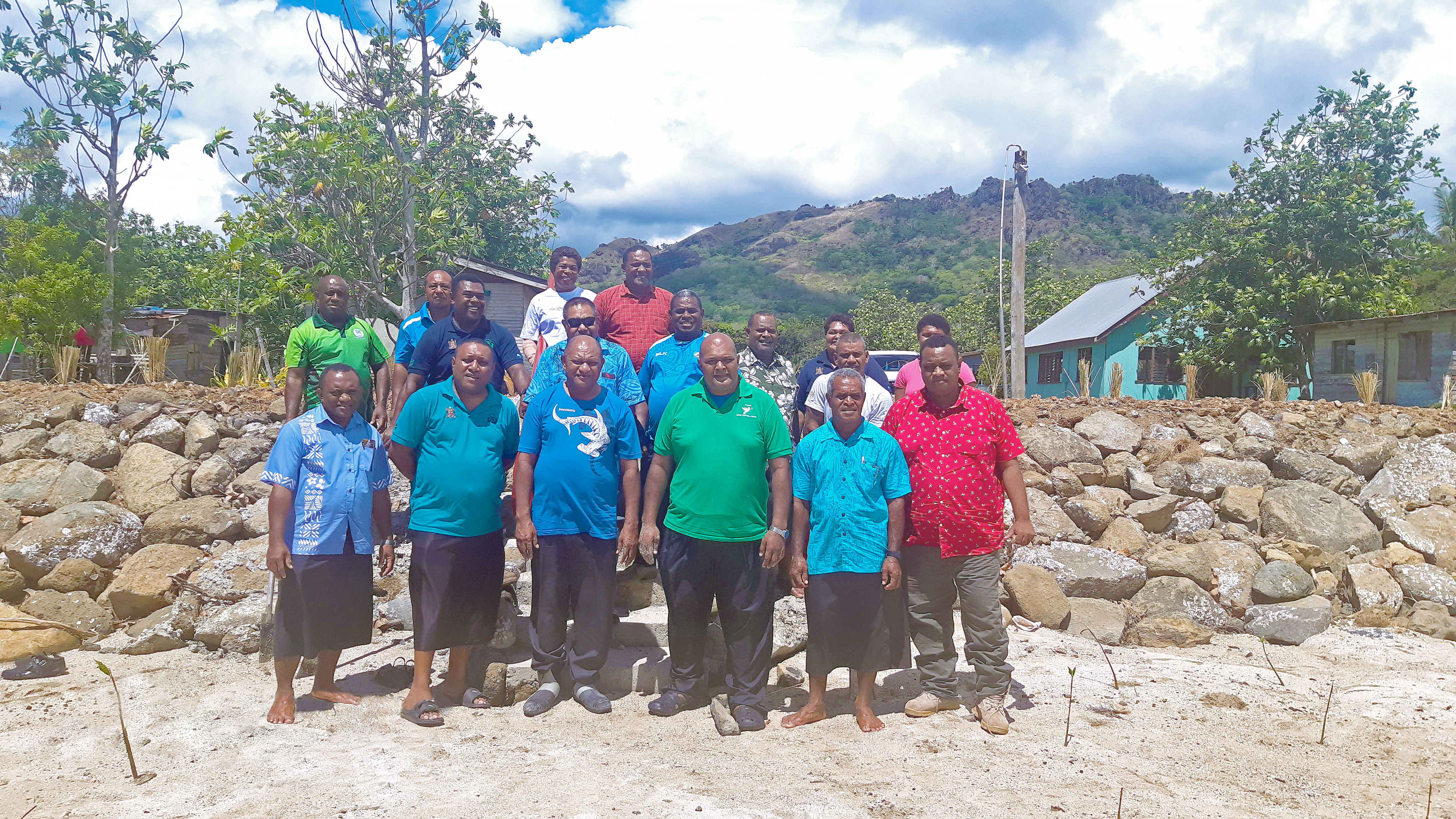
Forestry supports nature-based solution to combat climate change
Nature-based
solutions use the mechanisms provided by nature itself to offer protection from
natural disasters, to help society to adapt to climate change and provide
access to vital resources such as clean drinking water. For instance, these
could be wetland-related ecosystems to prevent flooding at high water levels,
coastal mangrove forests to protect coastal communities from waves, storm surge
and coastal erosions and protection of watersheds for drinking clean water and
ensure a sustainable supply.
In Fiji, Government endeavours to meet the challenges faced by rural and maritime communities with the promotion of sustainable and innovative solutions as the effects of climate change become more evident with soil erosion sediments getting into the sea, sea level rise and salt water intrusion reaching village taps, and farms.
Concerted and synchronized efforts by Government Ministries like that of the Ministry of Waterways and Environment, Ministry of Agriculture, Ministry of Rural and Maritime Development and Ministry of Forestry, to name a few, include tree planting activities inland to avoid soil erosion into rivers and streams, building of hybrid coastal seawalls and planting of mangroves to protect the shorelines.
For the people of Viro in Ovalau, the Honourable Prime Minister Voreqe Bainimarama launched a village hybrid (Bio-engineering) seawall in July this year. Nature-based hybrid seawalls are a cost-effective solution that will last a lifetime as they have the capacity to adapt more effectively and sustainably to sea-level rise as compared to conventional grey infrastructure approaches.
Facing a similar fate for years, villagers of Raviravi in the district of Seaqaqa, Vanua Levu watched helplessly as the tides rolled in to claim land and displace homes and resting places of their loved ones, and their lives.
While most of the village population have moved to urban areas for education and work, 140 villagers remain. Being innocent casualties of coastal erosion, previous village headmen have sought assistance from Government in the past for this on-going problem but it has been to no avail, until now.
Supporting Government’s collaborative efforts, the Ministry of Forestry provided mangrove seedlings and assisted the Raviravi villagers in planting along the shoreline.
Village headman Emosi Qovina said they had initially wanted a protective concrete seawall however he is grateful for the nature-based solution that Government has provided.
“I know that mangroves can help protect against coastal erosion and it is good we have this cost-effective nature-based solution to safeguard us against coastal erosion and sea level rise.”
Mr Qovina said the tides have already claimed a few houses and also the resting place of some of their loved ones, but now there is hope in the village as Minister for Forestry Honourable Osea Naiqamu and other government officials led by the Commissioner Northern Uraia Rainima planted mangroves along the village shoreline this past Friday (11/9).
Minister Naiqamu said mangrove forests are some of the most productive and biologically diverse ecosystems on the planet.
“Mangrove ecosystems provide protection from the impacts of climate change by reducing wave energy and storm surges, adapts to rising sea levels, and stabilizes shorelines from erosion. The mangrove ecosystems are also an incredible source of carbon sequestration and storage, and are therefore important for climate mitigation,” he said.
Working collaboratively with the Ministry of Agriculture and the Ministry of Waterways and Environment, Minister Naiqamu said apart from the mangroves, planting vetiver grass alongside river banks will also help to absorb the overflow of water from reaching dry land as well as halt soil erosion into polluting the river which most naturally reaches into the sea.
“We hope you will see the benefits of these nature-based solutions as these will ensure that you can live without the fear of losing everything to coastal erosion and sea level rise.”
Minister Naiqamu said that the Ministry of Forestry will work with other agencies across Government, civil society and the private sector to implement these nature-based solutions in other villages that are also facing the effects of coastal erosion.
Mr Qovina on behalf of the people of Raviravi village thanked the Government officials for not only heeding their plea for assistance, but for also visiting the village to help with the actual planting of mangroves.
“Government is not only providing scientific but also very practical and pragmatic options. It is also listening to the people. It is a real Government for the people,” he said.
At the global level, nature-based solutions get increasing recognition as an indispensable part of global efforts to achieve the Sustainable Development Goals (SDGs). According to the Nature-Based Solutions for Climate Manifesto developed for the UN Climate Action Summit in 2019: “nature-based solutions are a vital complement to de-carbonisation, reducing climate change risks and establishing climate-resilient societies.”